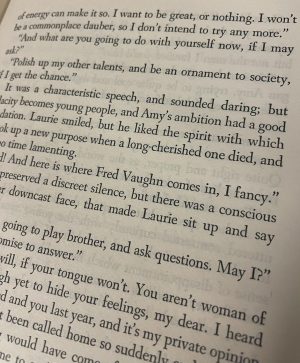That Political Drag
Oct 16, 2018
If the level of nervous politeness I have received in my effort to respond to Declan Leary’s recent column, “Drag Queens and Jesuits,” is any indication, then he has created at least a minor PR headache for John Carroll University. I have no doubt the politically conservative leaders and groups he cites favorably in his various online articles would applaud him, driven as they are of late by the simple desire to see their enemies squirm, among whom the university figures prominently. His articles also employ the political right’s new favorite rhetoric, the rhetoric of the empowered victim who should get to decide what other groups are allowed to do or not to do. This rhetoric springs from the right’s miscomprehension of the left as a cadre of faux victims who wield their faux victimhood as power, a power it wants for itself. It is for these reasons that I respond to what pretends to be–that is, what dresses in drag as–a column fueled by religious conviction as, under its showy trappings, a political column. I respond because I am one of the protestors who in 2010 helped lead the university to adopt protections for LGBTQ+ faculty, and from that experience and others I know the various motives that dress up as religious conviction.
Of the logical gaps and jumps in his column, the most dangerous and most telling one occurs in the final paragraph, where he associates the countless sexual abuse accusations against the Catholic church with Jesuits who, in exercising their relative tolerance, allow such goings-on as student-run drag shows on campus. His solution to such “sexual sin” appears earlier in his column, where he calls for the university administration to “purge [John Carroll] of the evils that have invaded it.” To restrict the privileges or rights of one group because of the faults of another as if they were related is the logic of scapegoating. It is the fault of neither the Jesuits at John Carroll nor any of the students there that the Catholic church is rife with abuse and has been for a long time.
Scapegoating is, at present, a central tenet of the theory of governance of the Republican party. The wages of American workers–in perpetual decline because of a stale governing rationale, so-called “neoliberalism,” put in place by Ronald Reagan and left effectively unchallenged by even Barack Obama–will improve once immigrants, particularly Mexican and Latinx immigrants, are removed or severely limited in number, according to the thinking of that party. Candidates running for that party have tied the recognition of gay rights to everything from weather disasters to school shootings. I cannot think of a major policy championed by the Republican party at present that does not tacitly or explicitly seek to understand a complex, multicausal problem as the fault of some group or other–but never their largely homogeneous base–who must be blamed, punished, and/or excluded.
Leary is bothered that during Sunday mass he should have to hear a “homily whining about the president.” I fail to see his cause for complaint. In a high-school column, he favorably cites Pope Francis’s claim that “A good Catholic meddles in politics.” Perhaps Leary has outgrown that “simple but beautiful” sentiment. While I do not especially care to see the Catholicization of American culture, if Leary does, then certainly he should agree that few things could more quickly steer the country back toward the ambit of Catholic morality than the removal from office of a hubristic, greed-driven, untruthful, adulterous, womanizing racist. But from other articles he has published online, it is clear that Leary would prefer Trump and all he represents to the reckoning he senses the Reagan coalition is in for: “The wall is expensive, and almost entirely superfluous,” he has written, but “The people voted for a wall. Give it to them, or kiss the party goodbye.” This tension between what he at some level knows to be right or wrong, either intellectually or morally, and what has political appeal, is the defining tension faced by intellectual American conservatives at this time. Leary decries compromise with the cultural pressures exerted by the left, as he makes clear in his column, but he is willing to grant slack to the superfluities of the right–whatever wins votes.
I attended John Carroll University from 2006 to 2010. My first semester there I took “Introduction to Philosophy,” required of all students, with a professor who was also a priest. Because I responded to an essay prompt of his not with a regurgitation of the recognizably Catholic creed he espoused in class but with an argument provided for in the terms of the text he assigned for class, he told me in his office that I was close-minded and did not belong in college. As a first-generation college student with a difficult homelife, experiencing the onset of adult mental illness, and being one of a handful of “out” gay students on a campus with a small but aggressive homophobic segment of its student body, those were not reassuring words to hear. I, however, had the privilege, a privilege I did not take for granted, to choose what to do about my offense. I dropped the course and took it the next semester with Dr. Mariana Ortega, who was supportive of me the rest of my time at John Carroll, and though she has moved on to an appointment at another university, it is still the caring, talented, welcoming character of professors like her that I associate with the best of John Carroll, and if her teaching awards are any indication, then I am not alone in that judgment. If I could talk to that first professor-priest now, I would tell him that, thanks to professors like her, I am now pursuing a PhD at a university in California now ranked fifth among public universities in the nation by U.S. News Report. I would tell him I belong in college so well that I’m going to make a career of it.
Both times I have visited my family in Ohio from California, I have driven, rather than flown, across the country. Along the way, I have discovered firsthand just how dominated the heartland and other rural parts of the country are by conservative talk radio, radio funded not locally but from wealthy outside groups. In such areas, the putatively religious stations are indistinguishable from the political ones. Religion as practiced in much of the United States has in this and other ways become in many cases indistinguishable from politics, particularly the politics of exclusion, the politics of marking out, punishing, and asserting dominance over outsiders, especially outsiders who are relatively few in number. Religion has become a kind of drag “troubled” men and women wear hoping to make their nastiest impulses unrecognizable, but fewer and fewer people are fooled. The Bible is a rich, complex text that rewards countless re-readings, but listening to American conservative talk radio or to the politicians Leary favors in his various articles available online, one could be forgiven for thinking the Bible was nothing but a political manifesto with a list of enemies and the reasons they must be dispatched.
Declan Leary is clearly intelligent, or at least well-educated from having had the privilege of attending both a private high school and a private college, and he is passionate. The gaps in his thinking could be worked out easily enough with a class like “Introduction to Philosophy.” The priest who tried to discourage me from university has retired, and so I am sure he would receive a sound education at this university now, if he can bring himself to believe it. People like him will inherit what’s left of the Republican party. What Leary needs to decide is whether he wants to do the real work this country needs, which is to encourage the groups associated with the political right–right-wing media, certain strains of Christianity, business groups–to take a much needed look inward, and to make sure their values match their dress, or if he wants instead to continue the real drag show, dragging down the country by feeding an increasingly impoverished conservatism that throws stones at the groups it has labeled ENEMY while real moral rot and increasingly dangerous impulses grow unchecked within its ranks. The current path of the Republican party is a dead end, a historically well-documented pattern of reaction on the part of a declining, once-dominant demographic; it has sold what was left of its soul (the rot is decades old) for an election cycle or two, but it knows the bill is coming due. Will the new generation of conservatives pay the debt that compounds every day that it remains silent about–or worse, approving of–this blight upon the country in office, or will those conservatives continue the tradition of trying to make someone else pay? There are many, I am sure, who agree with Leary when he says with such pathos that we are “terribly, terribly lost,” but I am less sure that “whining” about a drag show will get to the root of the problem. Unlike the professor-priest, I am not going to suggest that Leary is so close-minded that he doesn’t belong in college. He gets to choose. That is what privilege feels like; that is how he can know he is not a victim. If he is “terribly” offended by the mere presence of a drag show at John Carroll University, he can study elsewhere–no one will force him to leave or stay.











